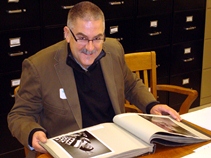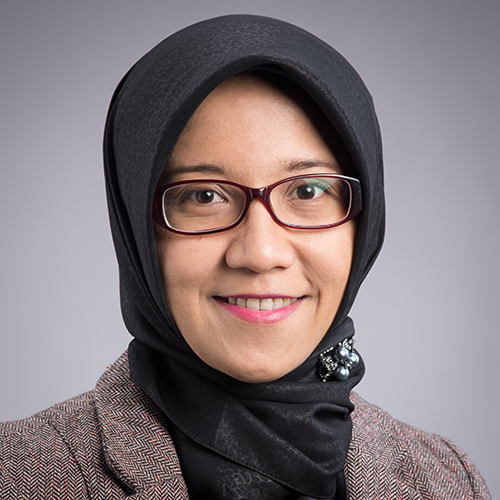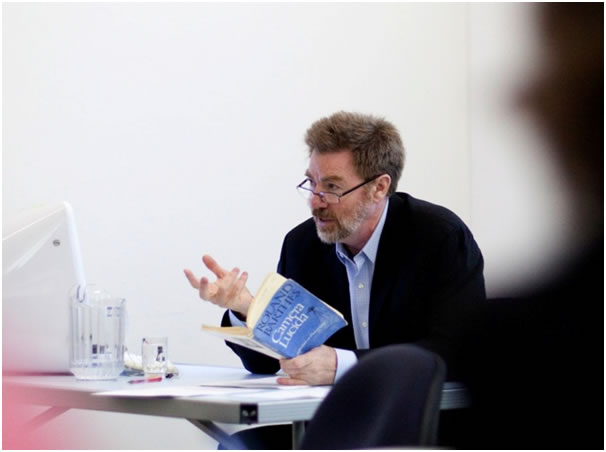Choose your courses
Get ready for study and check out what courses are offered by the School of Art History, Classics and Religious Studies.
The School of Art History, Classics and Religious Studies (SACR) welcomes interest from New Zealand and international students. Our postgraduate community, although diverse in its interests, is sociable and intellectually engaged. Regular discussion groups, seminars, conferences and social events, allow new postgraduate students to get to know their peers, intellectually and socially. Looking over the topics of our research students, current and past, will give you some idea of the range of research interests in the School, and a sample of the topics for which we can offer supervision.
Alternatively you can look through the staff pages for an idea of our research interests. Students with prior academic experience in more than one of the School's Programmes are encouraged to discuss interdisciplinary research projects with appropriate staff. To begin with you should familiarise yourself with the relevant degree information and application procedures.
PhD/MA Coordinator listed first, followed by Honours Coordinator
Associate Professor
School of English, Film, Theatre, Media and Communication, and Art History

Associate Professor
School of Languages and Cultures
Senior Lecturer
School of Languages and Cultures

Emeritus Professor
School of Social and Cultural Studies
Enhance your degree and gain advanced knowledge in art history while developing your research skills.
Build on your undergraduate degree, enhance your CV and expand your mind—explore modern viewpoints on the ancient world with postgraduate Classical Studies.
Enhance your command of Greek and your understanding of the literature and legacy of Greece and Rome with advanced study in classics at Victoria.
Enhance your command of Latin and your understanding of the literature and legacy of Rome with advanced study in classics at Victoria.
Launch a career in the museum and heritage sector or take your existing career in a new direction with a flexible range of professional and academic qualifications.
Enhance your understanding of the diverse world of religious beliefs and practices and give your career a boost with postgraduate Religious Studies.
The GDipArts can be undertaken by graduates who do not have the necessary prerequisites for entry into an Honours programme or who want to extend their knowledge into an area outside their undergraduate degree. It is a one-year full-time, or up to four years part-time, programme of study.
For further information on the requirements and application process, please refer to the Graduate Diploma in Arts page on the Faculty of Humanities and Social Sciences' website or contact the relevant Postgraduate Coordinator.
The PGDipArts is intended for students eligible to study at 400 level, but not wishing to undertake the research component required for a BA(Hons).
Entry to the PGDipArts requires the same average grade as for a Bachelor of Arts with Honours.
For further information refer to the Postgraduate Diploma of Arts.
An Honours degree is normally a one-year, full-time programme of course work (four 400-level courses, 120 points) taken after the completion of a BA or a GDipArts in the relevant subject area. There is provision for Honours to be taken part-time over a maximum of four years.
All Honours students are required to include a Research Project in their programme of study (ARTH, CLAS, GREE, LATI or RELI 489).
Entry to Honours study is normally based on achievement of at least a B average grade in the courses that are relevant to the proposed Honours study. For further information refer to the Bachelor of Arts with Honours or contact the relevant Postgraduate Coordinator.
A first or upper-second class Honours degree in the relevant subject area or in an approved other discipline is needed to enter the MA programme, although applications will be considered on a case-by-case basis. A candidate shall complete the degree within 12 months of first enrolling in it (extended pro rata for students who are half-time). For further information refer to the Master of Arts 120 points.
Information for Classics MA students can be found in our In-house Guide to Postgraduate Study in Classics.
For information about a Religious Studies MA see the attached poster. (PDF 1.01MB)
Potential Art History MA students should contact the Postgraduate Coordinator, Peter Brunt or the Programme Director, Geoffrey Batchen.
Potential Museum and Heritage MA students should contact either Lee Davidson or Conal McCarthy.
The Postgraduate Certificate, Postgraduate Diploma and Master of Museum and Heritage Practice offer a unique combination of theoretical and applied study at an advanced level, which prepares graduates for a career in museums, art galleries and a range of cultural and natural heritage organisations in New Zealand. The MMHP is a 180 point taught Masters that can be completed in a calendar year. For further information, please see the Museum and Heritage Postgraduate Studies page.
A PhD is an advanced research qualification carried out under academic supervision and is the highest degree offered by the Faculty of Humanities and Social Sciences / Te Wāhanga Aronui.
The PhD thesis is a major piece of original research that demonstrates the candidate’s ability to carry out independent research and constitutes a significant and original contribution to knowledge or understanding in a field of study. As well as intelligence and an aptitude for research, the degree requires considerable dedication and tenacity.
The minimum period of registration before a PhD thesis can be submitted for examination is 36 months full-time (or equivalent).
Enquiries and applications
The Faculty of Graduate Research (FGR) is the best place to start if you are interested in doctoral study at Victoria. Its website will link you to the online application process, provide you with details of available funding, application dates, and answers to questions you may have about what is involved in undertaking a PhD.
Your acceptance will depend on a number of factors, including your previous qualifications and experience, the suitability of your topic for PhD studies and our capacity to supervise you and your topic.
Application for admission and for consideration for a Victoria Doctoral Scholarship is a combined process. You may apply at any time, but there are three deadlines for PhD applications to be considered:
Find out how to apply here. If you have any questions about the application process please email the Doctoral Admissions staff.
The pamphlet PhD in Classics has everything you need to know about studying to be a Doctor in Classics.
For information about a Religious Studies PhD see the attached poster.
Potential Art History PhD students should contact the Postgraduate Coordinator, Peter Brunt or the Programme Director, Geoffrey Batchen.
Associate Professor
School of English, Film, Theatre, Media and Communication, and Art History
